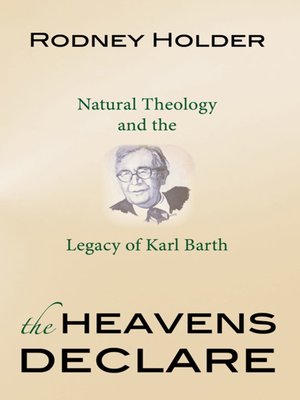
Sign up to save your library
With an OverDrive account, you can save your favorite libraries for at-a-glance information about availability. Find out more about OverDrive accounts.
Find this title in Libby, the library reading app by OverDrive.



Search for a digital library with this title
Title found at these libraries:
| Library Name | Distance |
|---|---|
| Loading... |
One of the central themes of inquiry for Karl Barth, the twentieth-century Protestant theologian, was the notion of revelation. Although he was suspicious of natural theology (i.e. the seeking of evidence for God's existence in the ordered structure of the world), recent scientific advances (notably in physics and cosmology) and the flourishing modern dialogue between science and religion offer compelling reasons to revisit Barth's thinking on the concept. We must again ask whether and how it might be possible to hold together the notion of revelation whilst employing reason and scientific evidence in the justification of belief.
In The Heavens Declare, author Rodney Holder re-examines Barth's natural theology argument and then explores how it has been critiqued and responded to by others, starting with Dietrich Bonhoeffer and Wolfhart Pannenberg. Holder then considers the contributions of two notable British participants in the science-religion dialogue, Thomas Torrance and Alister McGrath, who, despite their repudiation of natural theology in the traditional sense, also provide many positive lessons. The book concludes by defending an overall position which takes into account the ideas of the aforementioned theologians as well as others who are currently engaged positively in natural theology, such as John Polkinghorne and Richard Swinburne.
Holder's new study is sure to be of interest to theologians, philosophers of religion, and all scholars interested in the science-religion dialogue, especially those interested in natural theology as an enterprise in itself.







